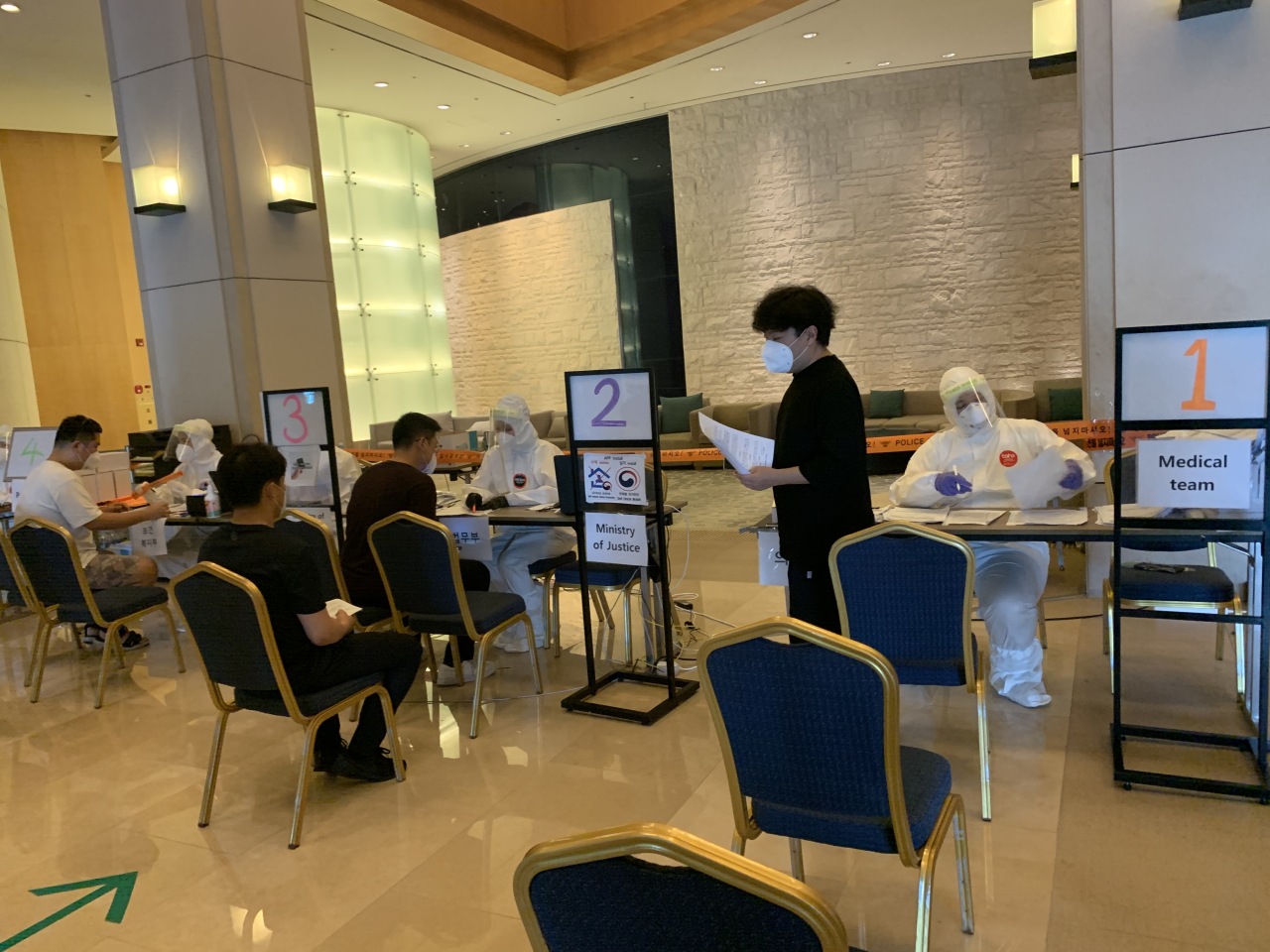
After having their samples collected for testing, passengers are required to fill out a medical questionnaire and install a government-developed health app to monitor their symptoms. Instructions are provided in seven languages.
INCHEON -- South Korea has required a 14-day quarantine for all arrivals from outside the country since April 1. Passengers with symptoms are tested at airport checkpoints and either sent to health institutions or other quarantine sites, depending on the results. The rest go to quarantine hotels -- such as this one in Incheon, situated less than 10 minutes’ driving distance from the airport.
Since being made over as quarantine housing on May 22, the five-star hotel has hosted 2,323 passengers. At its peak, all 450 of its quarantine-ready rooms were filled.
“Not a single contagion case has taken place at the hotel since it started hosting quarantining travelers,” said Ko Deuk-yung, a senior health official overseeing coronavirus travel policies. He attributes its contagion-free status to the strict safety management system.
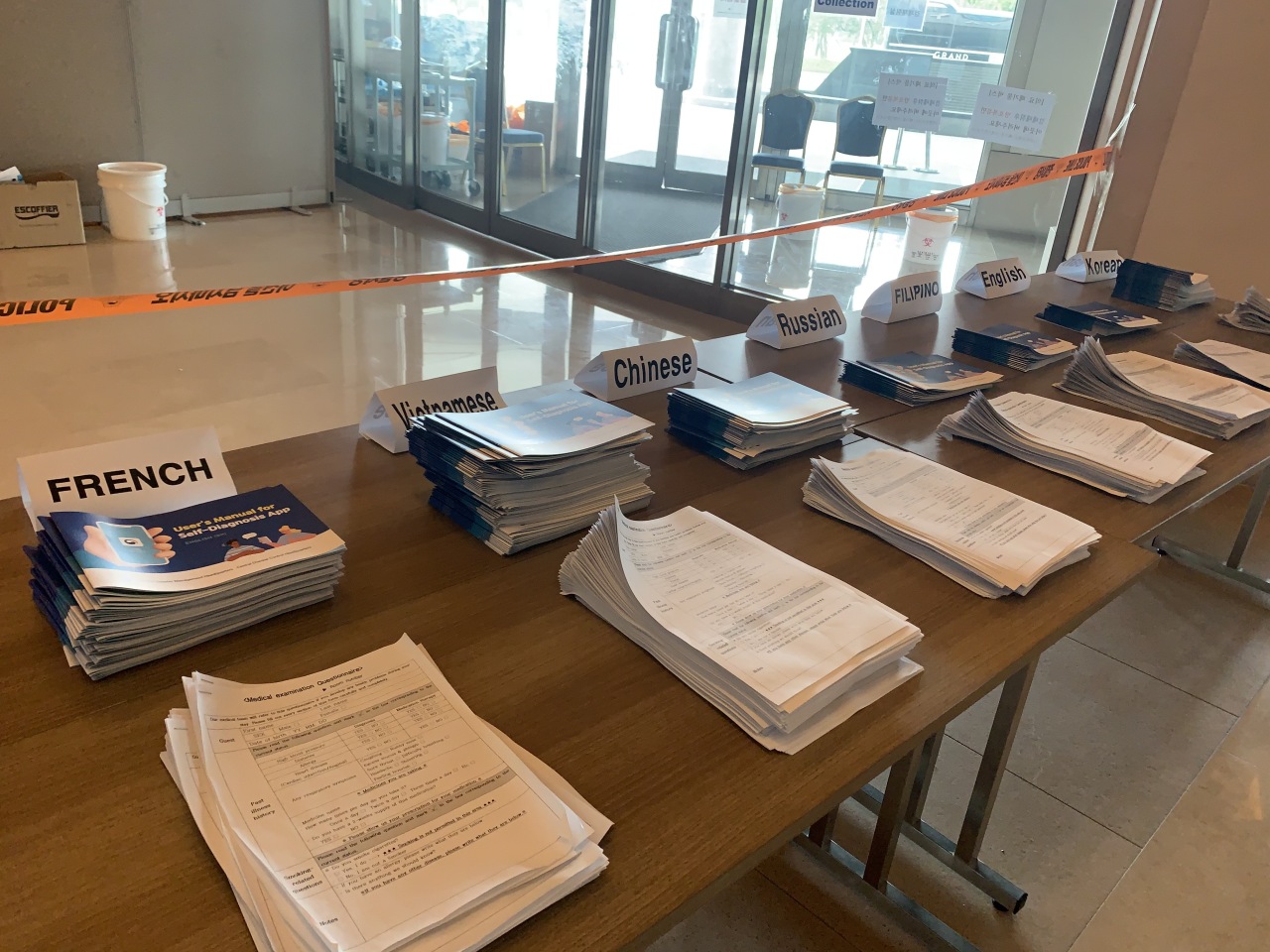
After having their samples collected for testing, passengers are required to fill out a medical questionnaire and install a health app for checking symptoms. Instructions are provided in seven languages.
Check-in at the quarantine hotel is a four-part process.
All passengers have their temperatures checked in the lobby and have nasal samples collected for testing. Then medical personnel examine them for symptoms and ask them to submit a questionnaire detailing their medical history. In addition, they are required to install a smartphone app that will guide them in checking symptoms for themselves.
Before they can finally check in, they have to give written consent for the quarantine procedure, which Justice Ministry officials later review.
The government provides the instructions in seven languages -- English, Chinese, Vietnamese, Filipino, French, Russian and Korean -- and has hired a local travel agency to provide translation services.
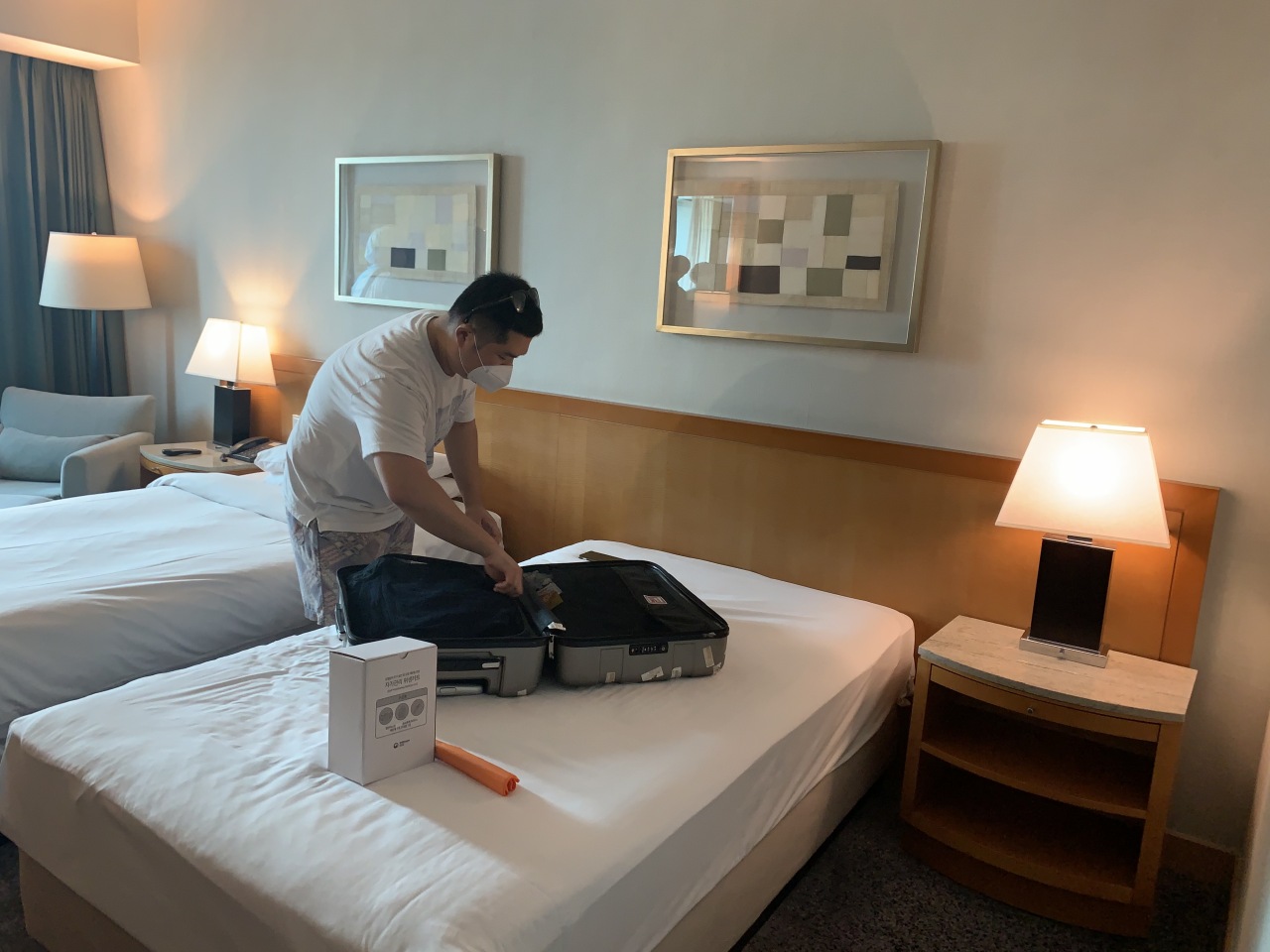
A passenger who checked in on Wednesday afternoon unpacks his belongings in the room where he will be staying for the next two weeks.
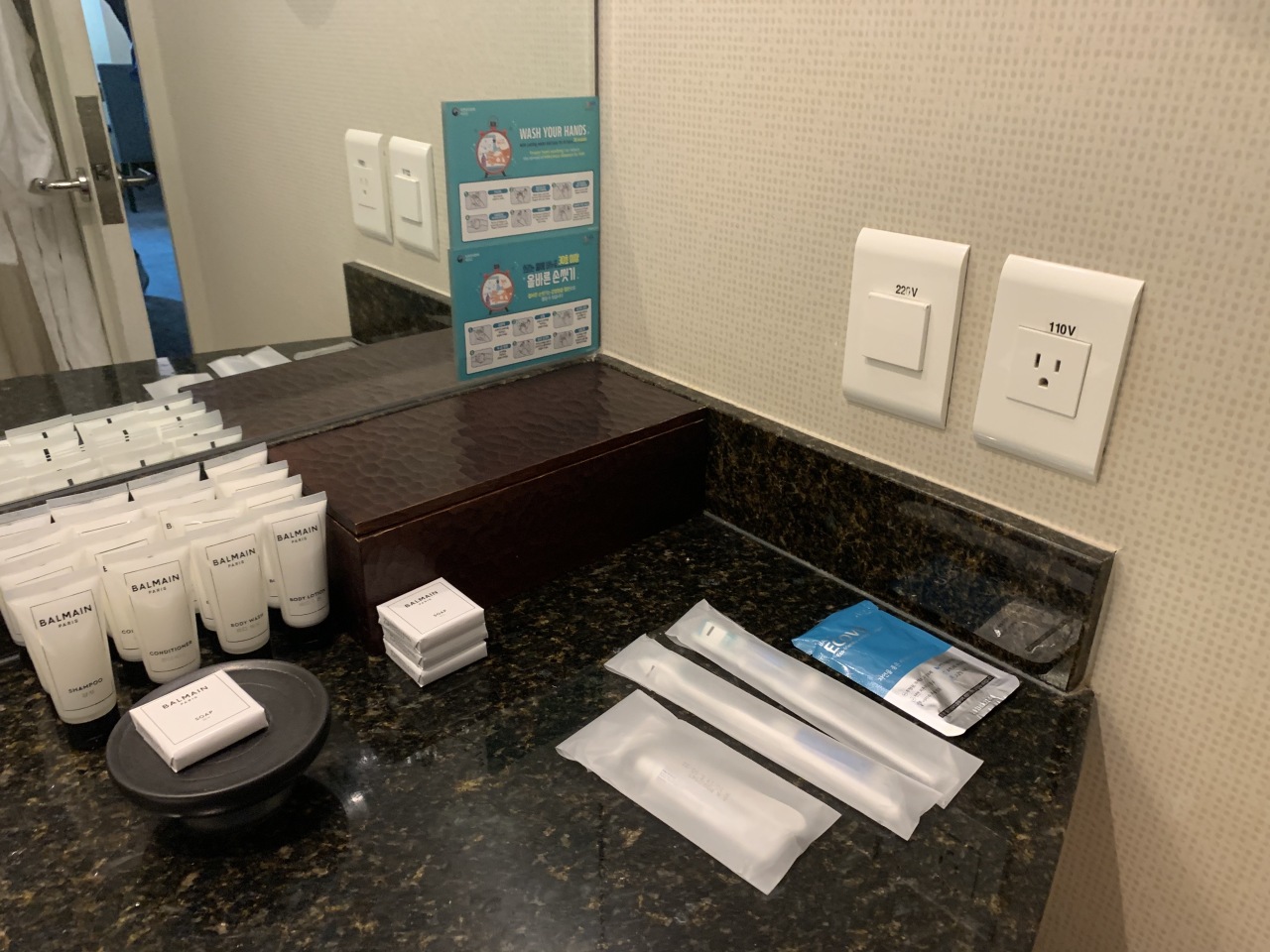
Hand-washing guidance is attached on the washroom mirror.
Bae Su-mi, who is in charge of the site’s operations, said check-in sessions are limited to 20 people at any one time for social distancing purposes. The entire process of admitting 20 passengers takes about 75 minutes on average.
“Between check-in sessions, the lobby as well as the elevators are cleaned and disinfected. Everyone is in protective suits throughout the whole process,” she said.
For the two weeks the passengers are in quarantine, they are confined to their rooms. Hallways are monitored with closed-circuit television cameras in case of breaches.
With exception of passengers with children, the rule is strictly one person to a room.
Meals are delivered to rooms three times a day by staffers, who also run errands for passengers. They have four meal options, including pork-free, vegetarian and vegan plans.
Every morning, doctors make the rounds and check passengers for coronavirus symptoms. So far, 18 people have been diagnosed with the disease while quarantining at the hotel.
“Because some have tested positive after returning negative results in the initial tests, we test everyone again before they are discharged,” said Dr. Kim Sang-gi, who is among the 10 health staffers there.
The Incheon site is staffed by 41 officials from the Health, Interior, Environment, Justice and Defense ministries, as well as 13 from the police agency and one from the fire department. This is excluding the hotel and travel agency staffers who help with housekeeping. All of them stay at the hotel on a separate floor while they work.
“We are committed to keeping the travelers, staffers as well as the city’s residents safe from infections,” said Ko of the Health Ministry.
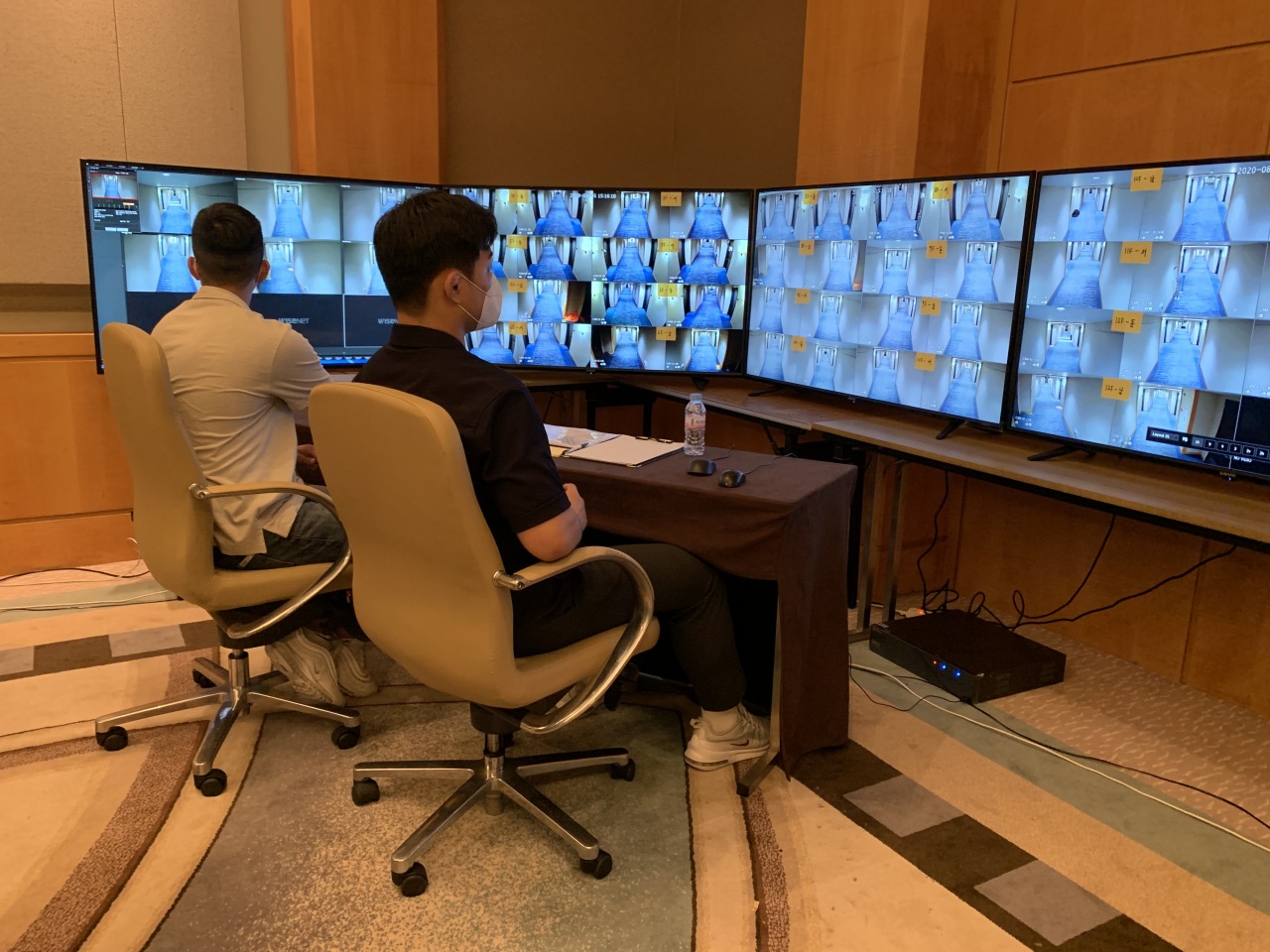
In the situation room, military officials work round the clock in two-hour shifts and monitor the hallways to make sure there are no quarantine breaches.
By Kim Arin (
arin@heraldcorp.com)










![[KH Explains] How should Korea adjust its trade defenses against Chinese EVs?](http://res.heraldm.com/phpwas/restmb_idxmake.php?idx=645&simg=/content/image/2024/04/15/20240415050562_0.jpg&u=20240415144419)